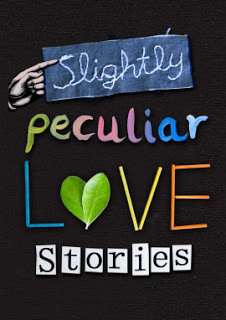A Foreign Country
What with revising my novel and finishing my poetry collection manuscript, I haven’t written many short stories lately — but I’m very pleased that a new story of mine is appearing in A Foreign Country: New Zealand Speculative Fiction, an anthology from Random Static Press that’s being published in August and is available for pre-order now.
The lineup of authors is:
Philip Armstrong, Richard Barnes, Claire Brunette, Anna Caro, Matt Cowens, Bill Direen, Dale Elvy, J.C. Hart, Paul Haines, Miriam Hurst, Tim Jones, Susan Kornfeld, Juliet Marillier, Lee Murray, James Norcliffe, Ripley Patton, Simon Petrie, Brian Priestley, Marama Salsano, Lee Sentes, Janine Sowerby, and Douglas A. Van Belle.
A Foreign Country is being launched at Au Contraire, but there is no need to wait till then – remember you can pre-order online.
The Poetry Archive of New Zealand Aotearoa (PANZA) Goes Public
The Poetry Archive of New Zealand Aotearoa (PANZA) is going public this month. Here are the launch details:
Venue: St Anne’s School Room, 79 Northland Road (next door to the Poetry Archive at 1 Woburn Road, Northland, Wellington).
Time: 2-3pm
Date: Sunday, 25 July 2010
Books Launched by: Nelson Wattie
As well as the official opening, two new poetry books are being launched:
The Pop Artist’s Garland: Selected Poems 1952-2009 by F W N Wright (HeadworX) and Rail Poems of NZ Aotearoa edited by Mark Pirie (PANZA/ESAW).
Special launch price of $15.00 for both books (Rail Poems of NZ Aotearoa is the first publication by PANZA’s publishing arm and is a free giveaway with The Pop Artist’s Garland).
No EFTPOS available. Please pay by cash or cheque.
Please visit the Poetry Archive web site. It includes information about the Archive, how to get there and how to use it, as well as our catalogue of NZ poetry related items. Feel free to drop by and make a donation or have a look around. Visits by appointment only.
The Manhire Prize
This year’s Manhire Prize for Creative Science Writing is focusing on the mind. Here’s the official word from the press release:
New Zealand writers challenged to focus on the mind
The country’s only literary award for science writing is reflecting the Royal Society of New Zealand’s move to take the humanities under its wing.
The Royal Society of New Zealand Manhire Prize for Creative Science Writing has celebrated success since it started in 2007 by encouraging writers with an interest in science. This year the topic ‘The Mind’ is designed to encourage entrants to consider the human aspect as well.
Prize-winning poet and fiction writer, Bill Manhire, after whom the competition is named says “We are centering this year’s competition around a quote from Milton – ’The mind is its own place, and in itself / Can make a Heav’n of Hell, a Hell of Heav’n’.
“We think this will allow entrants to explore the links between the brain, the heart and the personality.”
Past winners of the award include Alison Ballance, Tina Makereti and Dave Armstrong, who is this year’s judge. Dave has enjoyed success both for screen and stage. His recent play Le Sud is currently touring around the country to sold-out audiences. He has also penned three Chapman Tripp Award winning plays ((Niu Sila, The Tutor, where we once belonged) and has worked with Te Papa Museum and various experts to translate science into story.
There are two categories for the competition, fiction and non-fiction. Winners from each category are awarded a cash prize of $2500 and winning entries are printed in the New Zealand Listener.
Entry forms can be found in the Listener and on the Royal Society of New Zealand’s website. Closing date for entries is 10 September 2010.
Ecopoesis
Finally, here is an excellent poem about the terraforming of Mars. I think Kim Stanley Robinson would approve.


